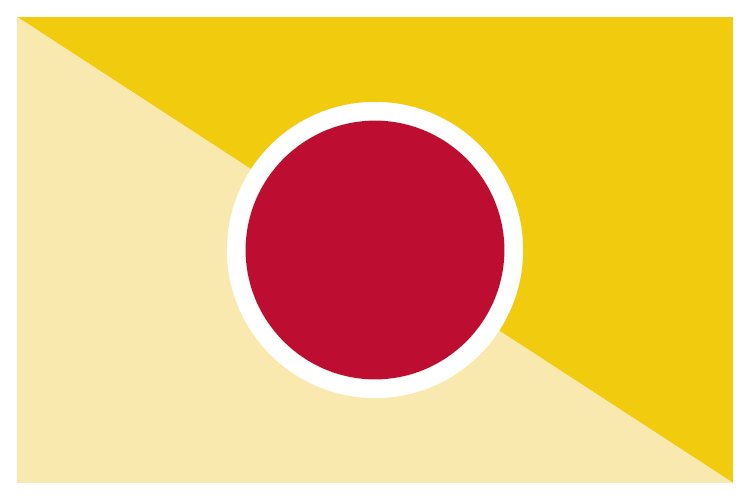News
10 Feb 2022
Red setting decimates NZ events industry

Subscribe to CX E-News
On 24th January, all of New Zealand moved to the red traffic light setting to give time for people to get their boosters and for those aged under eleven to get vaccinated. The Government announced, “Red is not lockdown. At red businesses stay open and you can do most of things that you normally do.” The Government appeared to have completely overlooked the impact on the business of live entertainment, with indoor and outdoor events limited to one hundred people at the red setting.
Event organisers explored their options, desperately seeking clarity, many unable to trigger financial support under the existing arrangements, concerned not only for themselves but their staff. With no wage subsidy or resurgence payments, hundreds of entertainment technology employees and freelancers were left wondering how they would pay the bills as the lucrative Summer season was left decimated.
Cancellations and Postponements
Music festivals such as Splore, Christchurch’s Electric Avenue, downtown Auckland’s The Others Way, and Waikato’s That Weekend joined New Zealand Fashion Week, the Auckland Pride Festival, Wellington Food and Wine and Christchurch’s The Great Kiwi Beer Festival in pulling the pin. Theatre and the arts have been hit hard too with the cancellation of New Zealand Symphony Orchestra’s Art of Fugue tour, Royal New Zealand Ballet’s Venus Rising, New Zealand Opera’s Carousel on the Auckland Harbour Front and the live portion of Aotearoa Arts Festival. Wicked the Musical, four years in the making, scheduled to run the first week of February at SkyCity has cancelled the production completely. Christchurch’s Madagacsar the Musical, already postponed twice, cancelled after only three shows.
Others are optimistically holding off making a call. Jim Beam Homegrown, Wellington’s all Kiwi music festival with over forty bands, five stages and in excess of twenty thousand people will make a decision on 25th February, just three weeks out. Rhythm and Vines, postponed from New Years to Easter is watching things closely, as is Brent Eccles, promotor, who has Six60’s tour set to kick off in early March.
Some events that incorporate smaller performances have bravely – and with a huge amount of work on behalf of the organisers – opted to go ahead. Auckland Theatre Company’s Grand Horizons has reduced capacity to one hundred audience members per performance, socially distanced. Wellington Waterfront’s free live art, music and performance festival is offering a modified programme staring on 17th February, and the Auckland Art’s Festival is working through a number of scenarios.
Growing Protests
Alongside the event updates, protest on behalf of the industry grew, harnessed by Entertainment Venues Association of New Zealand (EVANZ) and Entertainment Technology NZ (ETNZ), and picked up by mainstream media. As ETNZ bluntly summarised in their efforts to capture the impact on their members in an online survey, “Throughout previous COVID frameworks, Kiwis have had access to wage subsidies and resurgence payments. However, this time around no such support has been made available despite some industries being totally unable to operate. After an already brutal 2021 for the music and live events industry especially, being left without work again in 2022 could see the decimation of many livelihoods.”
In just three days, two hundred and eighty people responded to the survey and the results were used to advocate to the Government. The survey findings showed the estimated loss of revenue from postponements or cancellations due to the move to red for the period 24 January – 1 May 2022 to be at eighty-five percent of the revenue of respondents over this period, equating to an estimated forty million dollar loss.
Many respondents took the time to expand on their circumstances. Freelancers described how they were unable to access the trickle down support from cancelled events as four or five weeks out they don’t have contracts; or workers talked about being left helpless because the events they were working on haven’t applied for support or aren’t eligible, such as local government venues. Many feared for the future of the whole industry, as businesses went under, or let skilled staff go. Contractors unable to financially support themselves and their families any longer were being faced with no choice but to leave the sector. Yet there was also a surprisingly high level of support for the Government’s restrictions. Respondents understood why they were needed, but felt that with their opportunity to work or operate their business taken away from them, they should be supported.
Government Response
The Government responded on 2nd February. The Arts and Culture Event Support Scheme, which covers unrecoverable costs for events with attendee capacity 100 to 5000 and free events, received an additional $70.7m in funding, originally set at $22.5m. The period covered has also been extended by 10 months until January 31, 2023, to include events planned before the whole country moved to the red traffic light setting, “Giving arts and cultural sector event organisers the confidence to plan and deliver events right through to the end of January 2023.”
Additionally, the Cultural Sector Emergency Relief Fund, a fund of last resort to support cultural organisations, including sole traders, was provided an additional $35.5 million. This announcement included mention of, “an easy to apply for one-off $5,000 grant to self-employed or sole trader practitioners who can show proof of practice as a cultural sector practitioner and show proof of a loss of income or opportunity.” More information on the criteria for this is expected by mid-February and will be open for applications by the end of February. This hardly scratches the surface of the lost earnings exemplified in the ETNZ survey and advocacy is continuing.
Two days later on 4th February, the Government made a further announcement on the Events Transition Support Payment Scheme (ETSP) which supports events with over 5000 attendees, removing the payment triggers, including requiring event organisers to wait until four weeks prior to cancel, “This will enable organisers to make decisions that are economically and socially reasonable in light of the ongoing uncertainty of public health settings between now and the end of the ETSP scheme (3 April 2022).” Unfortunately, ongoing uncertainty seems to remain for those events scheduled for after early April, although ETNZ is advocating for an extension to the ETSP to provide reassurance to those planning past this date.
More Information
For more information on the financial support available for the sector, the Government directs people to subscribe for updates https://mch.govt.nz/regenerating-arts-culture-and-heritage/subscribe-updates. At the time of writing the subscribe button was not working and there have been reports of issues with the online funding application process. In the meantime, the Government has provided a contact email address support.culture@mch.govt.nz, or follow the ETNZ Facebook page for regular updates on the situation.
For well-being support, counselling, and help with financial planning and career direction, ETNZ members can access Workplace Support Wellbeing Services. Just call 0800 443 445, let them know that you are an ETNZ Member, and tell them your membership tier. ETNZ are also continuing to run a weekly virtual morning tea as a ways to check in with members, provide support and just listen to what is going on around the country. Details can also be found on the ETNZ Facebook page: https://www.facebook.com/EntertainmentTechnologyNZ/
Subscribe
Published monthly since 1991, our famous AV industry magazine is free for download or pay for print. Subscribers also receive CX News, our free weekly email with the latest industry news and jobs.






